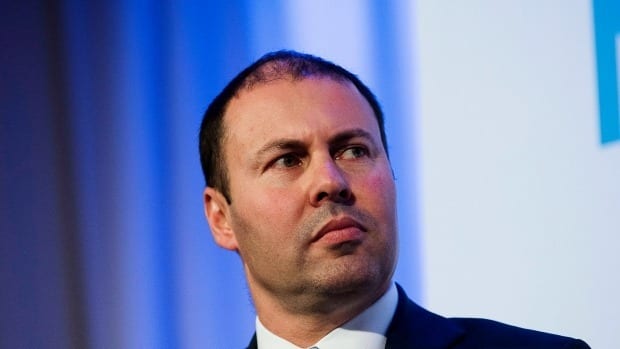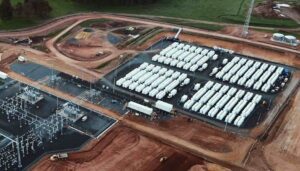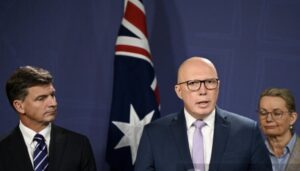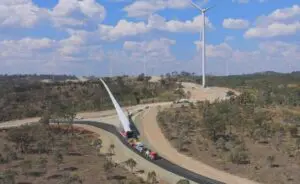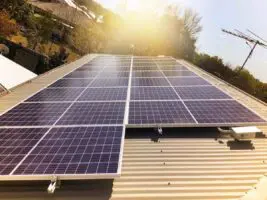Prime Minister Malcolm Turnbull has appointed a strong advocate of nuclear energy in the key resources and energy portfolio as part of sweeping changes to his cabinet and ministry.
 Josh Frydenberg, an ally of Tony Abbott who was previously assistant Treasurer, has been named as minister for resources, energy and northern Australia, as part of a reshuffle that sees the portfolio split from industry, innovation and science, which goes to former eduation minister Chris Pyne.
Josh Frydenberg, an ally of Tony Abbott who was previously assistant Treasurer, has been named as minister for resources, energy and northern Australia, as part of a reshuffle that sees the portfolio split from industry, innovation and science, which goes to former eduation minister Chris Pyne.
Greg Hunt retains his spot as environment minister, to continue his bluster around Direct Action as a result of Turnbull’s pact with the Liberal Party’s far right wing, and Turnbull has also appointed Jamie Briggs to be Minister for Cities and the Built Environment, in an appointment welcomed by the Green Building Council and others.
Gone in the reshuffle are two square pegs that Abbott tried to fit into round holes – the Industry minister Ian Macfarlane, who didn’t see much of a role for wind or solar in his energy portfolio, and was loved by incumbent industries, and Bob Baldwin, the assistant environment minister who didn’t think much of climate science. Frydenberg’s former senior minister Joe Hockey, the treasurer who – like Abbott – found wind turbines to be “utterly offensive” is also gone.
Frydenberg also has strong views on energy, and in particularly nuclear energy. He made it one of his three major issues when he made his maiden speech to parliament in October, 2010, and then made a series of speeches and articles pushing the technology.
In The Australian newspaper in early 2011, Frydenberg said nuclear was safe and cheap, and expected that sometime soon nuclear plants could likely be constructed within 2 ½ years. He also quoted nuclear advocate Ziggy Switkowski as saying that Australia could be 90 per cent powered by nuclear energy by 2050.
That article appeared in late January, 2011, just six weeks before the Fukushima nuclear disaster in Japan. Frydenberg hasn’t had much to say about nuclear energy since then, and indeed appears to have made no reference to it in any speeches posted on his website. He has, though, praised shale gas, and in that doesn’t differ much from his predecessor.
The market has changed remarkably since that time. Solar energy has transformed the outlook for global energy markets, and Australia’s in particular, and battery storage will hasten that transition.
Most major energy companies, and indeed grid operators in countries like the UK, say large centralized generators will become a thing of the past. The future is seen as one based around decentralised energy, with flexibility the key. The biggest utilities in Europe and the US are separating their fossil fuel interests to focus on renewables.
Nuclear, on the other hand, is being priced out of the market in all but those countries with central command and controls. In the US, even nuclear power stations built decades ago can no longer compete with renewables and gas, and the handful of plants being built in the US and Europe are already running well over budget, and taking years longer than planned. Even France is slashing its nuclear share by one third due to soaring costs.
In an interview with ABC Radio National on Monday morning, it was difficult to get a sense of any of that change, nor was there any sense that Frydenberg had grasped the key tenet of the Turnbull platform, about embracing the future rather than the past.
Frydenberg simply repeated the Abbott-government era chants about energy – that cutting of the renewable energy target to 33,000GWh from 41,000GWh was an “outstanding result”, and how Australia has huge opportunities to lift its energy exports to an energy hungry world.
OK, so it’s his first day on the job. But Frydenberg will soon find – if he has honest advisors within the department – that it is no longer as simple as that. China and India are winding back imports of thermal coal, and may even stop them altogether by the end of the decade.
The price of LNG is also falling, along with the oil price, and even the AFR, in a front page story, questioned whether the $200 billion in massive LNG price would generate a return on investment.
In the domestic energy market, change is afoot, but the regulators are reacting way too slowly. In two key states, Western Australia and South Australia, daytime demand is expected to be met with just rooftop solar within the next decade. Frydenberg says wind and solar will have “a role to play” in Australia’s energy mix. It will be more than that.
Such change will require new, not old, thinking about the delivery of energy systems in Australia, and the structure of markets – allowing the private capital and investment from consumers, both household and business, to be exploited, but in such a way that it can reduce the cost of the grid and generation, and deliver industry wide benefits.
The incumbent utilities recognise this challenge, to varying degrees, but seem more interested in protecting their current business models, revenues and profits, and are able to do so by their influence over a slow moving, backward looking and sympathetic regulatory environment.
But that’s not to say Frydenberg and those with his views are not for changing. WA energy minister Mike Nahan, a climate change doubting, pro-nuclear, anti-renewables head of the Institte of Public Affairs, now recognises that the future of energy will be centred around solar and distributed energy. And he is scathing of slow moving regulators.
Frydenberg’s only available working document is the energy white paper produced by his predecessor, which completely ignored climate change as an issue, and as a result downplayed the need, and the likelihood of change.
Frydenberg, though, is thought to be a “big picture” man, apparently from his time as an advisor to former foreign minister Alexander Downer.
He will find that put to the test. As Vince Hawksworth, the head of Trustpower, the second biggest investor in renewables in Australia, the country needs a long term energy vision. This is the central point of Turnbull’s rhetoric, but it will take some work – and overcoming of vested interests – to put a realistic one in place.
Key to Turnbull’s rhetoric around welcoming new technologies should be the Clean Energy Finance Corp and the Australian Renewable Energy Agency. Both have been targeted for closure under the Abbott regime, but the fate of both is still not known.
Frydenberg suggested it was not an issue for him, but for Hunt. That is confusing, because the CEFC was supposedly under the auspices of Treasury and Finance. There are still a few things to settle down.

